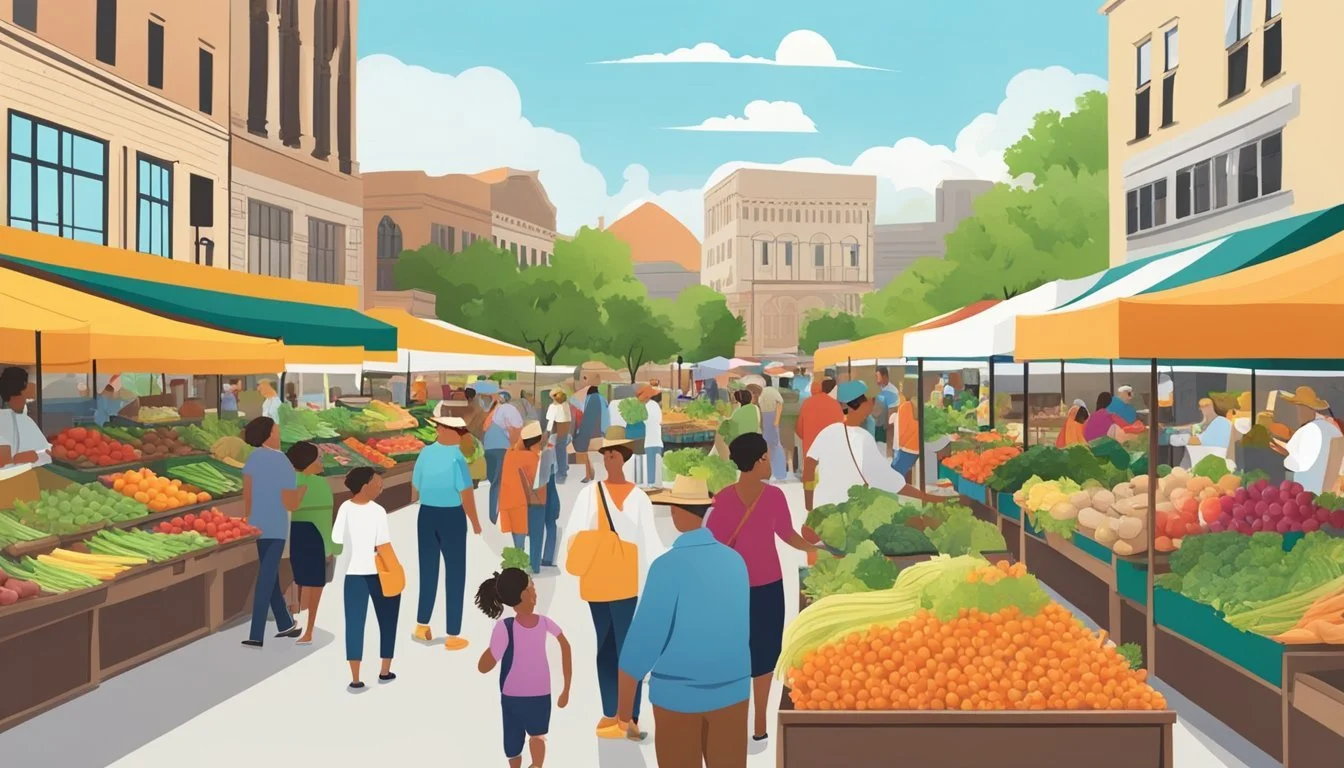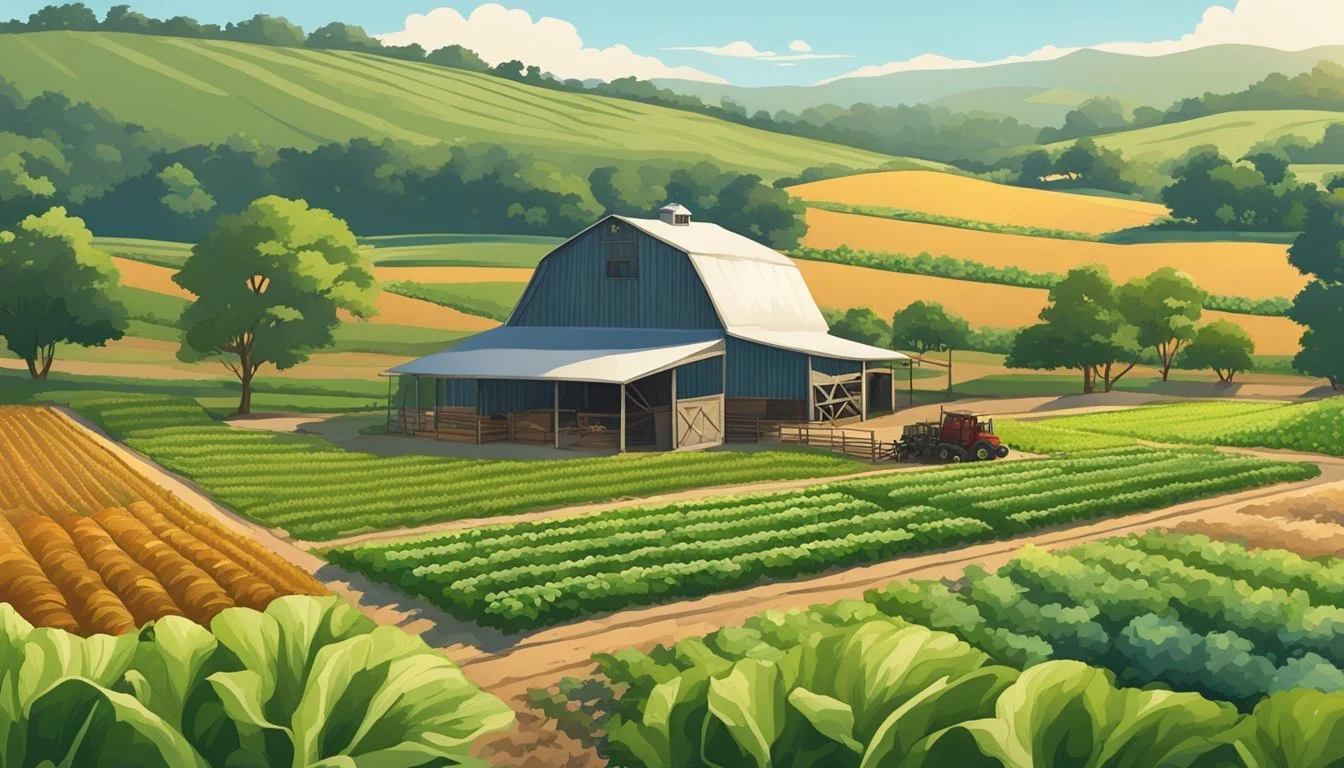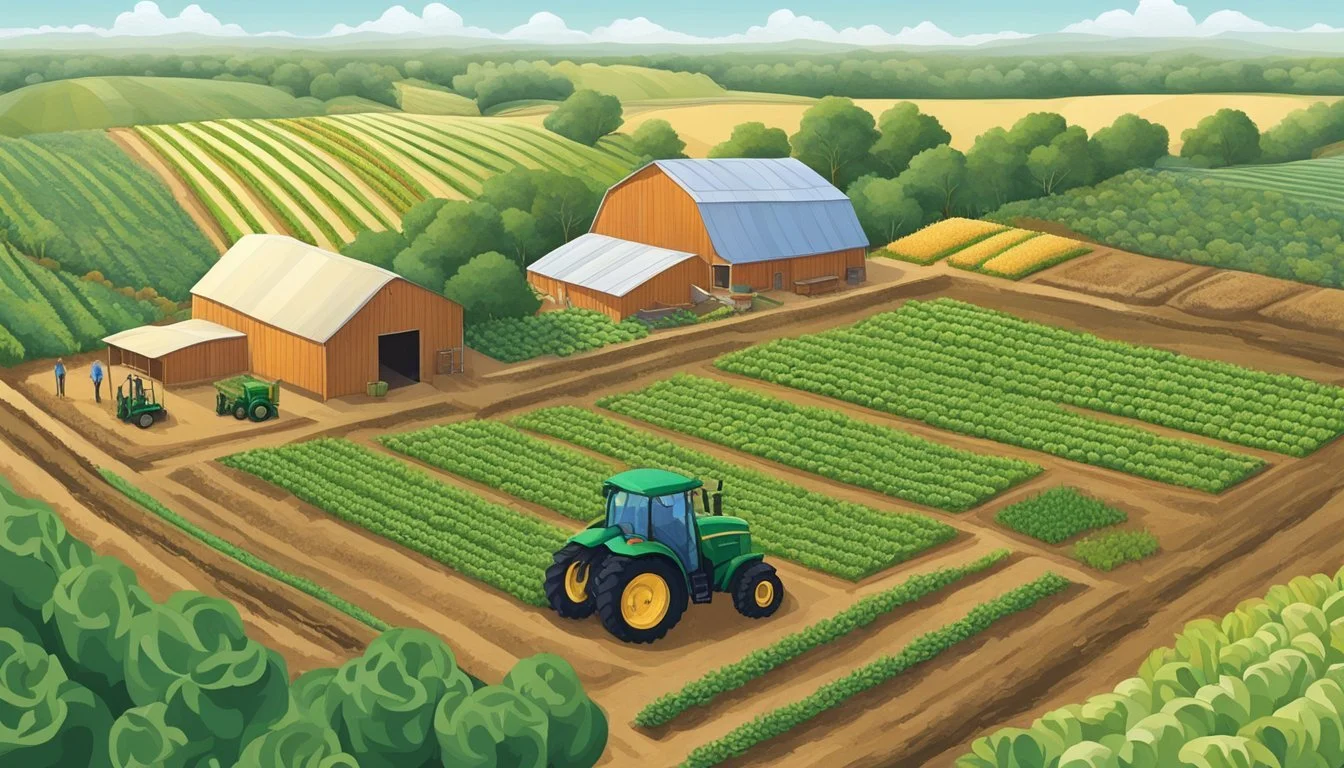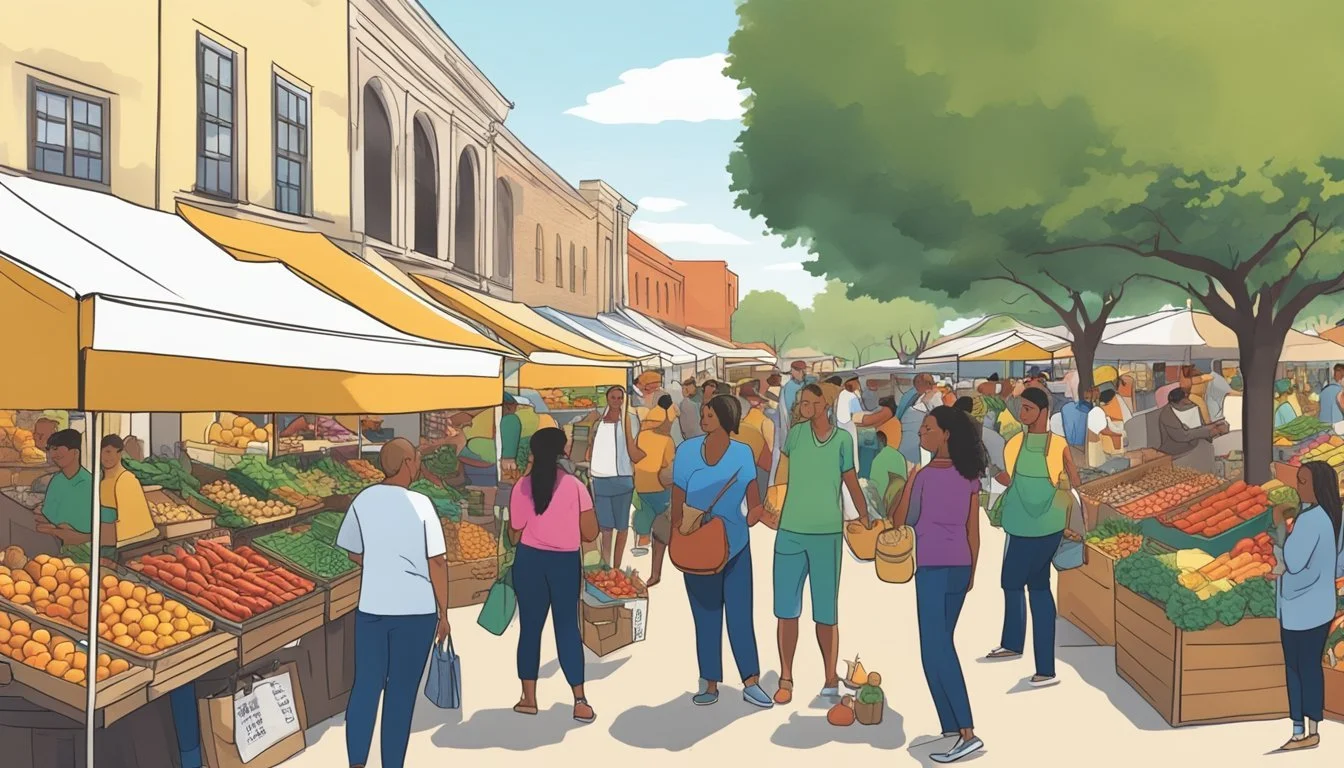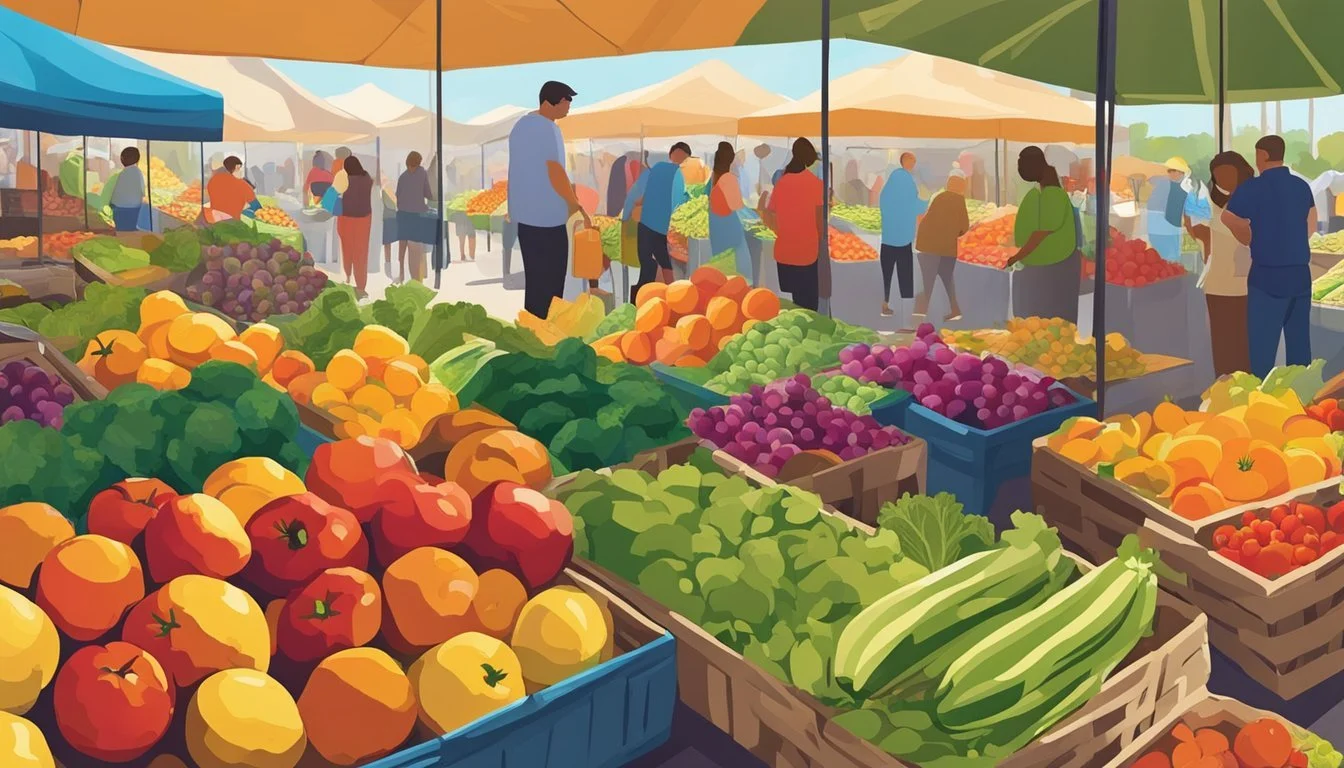Community Supported Agriculture (CSA) in San Antonio, TX
A Guide to Fresh, Local Produce
Community Supported Agriculture, commonly referred to as CSA, is a farming model that has taken root in places like San Antonio, TX, fostering a close-knit relationship between local farmers and the community. This practice involves individuals purchasing shares of a farm's harvest in advance, securing a portion of fresh produce throughout the growing season. It's a mutual commitment; members get regular access to fresh, locally-grown fruits and vegetables, while farmers gain a reliable market for their crops.
In San Antonio, these CSA programs offer a variety of pick-up locations and times to accommodate the schedules of their subscribers. For example, Green Bexar Farm, located in the heart of the city, allows members to collect their produce from designated pick-up points such as local coffee shops. This not only enhances convenience for members but also embeds the farm within the fabric of the community.
The ethos of CSA in San Antonio centers around sustainability and organic practices, with farms like Green Bexar Farms employing permaculture principles. Such approaches ensure that the produce offered to CSA members is not only fresh but also cultivated in an eco-friendly manner. The venture into CSA for both farmers and community members is more than a transaction; it's an investment in the health of the environment and the local economy.
What is Community Supported Agriculture (CSA)?
Community Supported Agriculture, commonly referred to as CSA, constitutes a partnership between local farms and the surrounding community. This symbiotic relationship centers around the community's investment in a farm's seasonal production, fortifying both the local agricultural economy and fostering environmentally conscious food sourcing.
Principles of CSA
Community Engagement: Individuals or families purchase shares or memberships from a local farm, essentially investing in the upcoming harvest.
Shared Risk and Reward: Both farmers and members shoulder the risks of farming, such as poor harvests due to adverse weather, but also reap the rewards of bountiful yields.
Benefits of CSA
Fresh, Organic Produce: Members typically receive a weekly or bi-weekly supply of fresh, often organic and sustainable produce, reflecting the current harvest.
Support Local Farmers: By participating in a CSA, members directly support their local farming community, contributing to the livelihood of farmers and the maintenance of agricultural land.
Environmental Impact: CSA promotes environmentally friendly farming practices that contribute to sustainable land use and reduced carbon footprints resulting from shorter transportation distances.
CSA Farms in San Antonio, TX
San Antonio's local food scene is enriched by various CSA farms committed to sustainable agriculture and community engagement. These farms offer a breadth of options for residents to obtain fresh, locally-grown produce directly from the source.
Green Bexar Farm
Located at 14997 FM 1346 in Saint Hedwig, TX, Green Bexar Farm operates with a dedication to sustainable permaculture principles. They aim to supply the local community with fresh, organic produce. Green Bexar Farm is known for its diverse salad mixes and assortment of vegetables tailored for CSA members. Their pick-up options reflect a commitment to accessibility and convenience for San Antonio residents.
Native Texan Farm
Miranda Hitchings manages Native Texan Farm, a farm with a legacy of organic farming practices dating back to 1993. Situated in San Antonio, this farm prides itself on a longstanding tradition, though not certified organic, their pledge to natural cultivation remains strong. They are recognized for delivering a variety of fresh eggs, boasting an array of colors including green, brown, and white to their local clientele.
Hanson Family Farm
The Hanson Family Farm could not be found in your initial search results. Thereby, no specific details can be provided at this time.
Please note, as the user did not provide detailed information on Hanson Family Farm, it is recommended for interested individuals to perform a search or inquire locally for the most current and comprehensive information regarding their CSA offerings and operating practices.
The Membership Model
Community Supported Agriculture in San Antonio operates on a membership model where customers subscribe to receive a portion of the farm's harvest. This system establishes a direct link between local farms and the community.
How CSA Shares Work
In San Antonio's CSAs, a farmer offers a number of shares for purchase by the public. These shares typically consist of a weekly box of seasonal vegetables, and may include other farm products. Subscribers to the CSA are effectively purchasing a portion of the season's harvest in advance. The specifics of share contents and pickup schedule are usually defined by the individual CSA. For example, Green Bexar Farm offers pickups on Tuesdays at multiple locations in San Antonio.
Type of Subscription: Weekly share of produce
Pickup Locations and Times: Defined by the CSA, e.g., Green Bexar Farm on Tuesdays
Products Offered: A mix of seasonal vegetables; other farm products may be included
Subscription-Based Farming
CSAs in San Antonio exemplify subscription-based farming, where customers become members by paying for a subscription to receive regular shares of produce throughout the farming season. The subscription fee is paid upfront, securing the customer's share and providing the farm with capital at the start of the season. This model offers stability for farmers and a direct source of fresh, local produce for customers.
Customer Commitment: Upfront payment for season-long produce
Farmer Benefit: Pre-season capital and guaranteed market
Frequency and Duration: Regular pickups, typically weekly, throughout the farming season
Local, Organic, and Fresh Produce
San Antonio's CSA programs offer an assortment of local and organic produce that encapsulates the freshest flavors of the region's fruits and vegetables. These initiatives prioritize seasonality and sustainable farming methods to deliver exceptional quality to their members.
Seasonal Availability
San Antonio's CSA members relish the bountiful harvests that vary by the season. This approach ensures that they receive the peak flavors and optimal nutrition of fruits and vegetables. For instance, spring may bring a variety of leafy greens like spinach and arugula, while summer offers ripe tomatoes and peaches. Customers can expect a diverse array of produce including:
Spring: Berries, Herbs, Spring Onions
Summer: Tomatoes, Peppers, Melons
Fall: Squash, Apples, Root Vegetables
Winter: Citrus, Leafy Greens, Broccoli
These are just a few examples of the seasonal offerings available, and the exact contents can vary year to year based on harvesting conditions and availability.
Organic Farming Practices
Farmers within San Antonio's CSA network adhere to organic farming practices, ensuring their produce is grown without synthetic pesticides, herbicides, or GMOs. They utilize methods like crop rotation, natural pest control, and composting, which are not only beneficial for the environment but also promote the growth of robust and healthy crops. Through dedication to these practices, they aim to nurture the land they farm on, maintaining its fertility and biodiversity for future generations.
Supporting Local Agriculture
Community Supported Agriculture (CSA) in San Antonio provides a direct pipeline from local farms to the consumer, enhancing the local economy and strengthening community bonds.
Impact on Local Economy
CSAs in San Antonio contribute significantly to the local economy by keeping consumer dollars within the community. Local food purchased through CSAs ensures money is reinvested in the area, supporting local farmers and minimizing transportation costs. The increase in demand for CSAs encourages the viability of small-scale agriculture and can lead to the growth of related businesses, like farmers markets, creating a positive economic cycle.
Revenue for Farmers: Direct sales through CSAs provide farmers with a larger share of the profit.
Job Creation: Robust local agricultural systems can lead to job opportunities in farming, distribution, and retail.
Building Community Connections
CSAs forge strong networks between local farmers and the local community. Members of a CSA often have the opportunity to visit the farms and meet the farmers, fostering a sense of connection and accountability.
Farm Visits: Opportunities to engage with food production and learn about sustainable practices.
Market Presence: Farmers participating in CSAs frequently become fixtures at local farmers markets, contributing to a sense of community.
Local food initiatives through CSAs bolster communal ties and provide consumers with fresh, sustainably sourced produce, reinforcing the cultural fabric of the San Antonio area.
Sustainable and Responsible Farming
In San Antonio, Texas, CSA programs are pivotal in promoting sustainable and environmentally responsible farming practices. These efforts reduce the reliance on harmful chemicals and enhance soil and ecosystem health.
Environmental Impact
Community Supported Agriculture (CSA) farmers in the San Antonio area prioritize the environment by minimizing the use of pesticides and herbicides, which can negatively influence local waterways and wildlife. For instance, Green Bexar Farm employs sustainable permaculture principles that support natural biodiversity and soil regeneration.
Reduced chemical usage: CSA farms often use fewer synthetic pesticides and herbicides, leading to less environmental contamination and healthier ecosystems.
Biodiversity: Sustainable farms encourage a variety of plant and animal life, creating a balanced ecosystem that can naturally manage pests and improve crop yields.
Sustainable Farming Techniques
Utilizing sustainable farming techniques, local farms like Green Bexar Farm on their 10-acre pecan orchard, focus on growing a mix of crops on around one acre of the land. These techniques include:
Crop Rotation: Alternating crops in fields to prevent soil depletion and disrupt pest cycles.
Cover Crops: Planting specific crops that add nutrients to the soil and suppress weeds without the need for chemical herbicides.
Green Bexar Farm has established a name for itself by adhering to these techniques, ensuring that they deliver fresh, organic produce to the local community. This direct connection between the farmer and consumer not only educates the latter on the importance of environmentally responsible farming but also fosters a local food system that values the health of both people and the planet.
Challenges and Considerations
Engaging with Community-Supported Agriculture (CSA) in San Antonio brings localized challenges, particularly concerning seasonal farming constraints and the intricacies of CSA membership.
Seasonal Farming Challenges
San Antonio's climate imposes distinct challenges on CSA farming, with temperature swings influencing production cycles. During winter months, farmers might struggle to provide a wide variety of produce, potentially limiting the availability of seasonal fruits. Farmers must plan meticulously to ensure year-round crop coverage, sometimes supplementing with greenhouse cultivation to bridge the gaps in outdoor growing seasons.
Winter Limitations:
Fewer varieties of fresh produce
Potential reliance on greenhouse growing
Understanding CSA Membership
CSA membership necessitates a level of commitment and education for subscribers. Members typically pre-purchase shares of the farm's output, which can vary week to week. They must understand the seasonal nature of their food supply, which involves receiving an abundance of certain crops during peak seasons and fewer options during others.
Membership Perks:
Freshness Guarantee: Members often receive produce that is freshly harvested.
Community Connection: Membership fosters a relationship between consumers and their local farmers.
Membership Responsibilities:
Pick-up Schedule: Members need to adhere to pick-up times and locations.
Seasonal Variability: Members should be prepared for fluctuating availability of certain produce.
Resources and Information
In San Antonio, Texas, those interested in Community Supported Agriculture can utilize a variety of resources for finding and engaging with local CSAs. These resources can provide detailed directories of local farms, contact information for market managers, and support systems for both consumers and farmers.
Local Food Directories
Local food directories are invaluable for finding CSAs in the San Antonio area. LocalHarvest is a prominent resource that provides a comprehensive list of local CSAs, along with details about their offerings and how they operate. Users can search for CSAs by location and find specific farms like Green Bexar Farm. This farm, among others, offers a range of fresh, organic produce to their CSA members. Moreover, directories often include whether farms encourage activities like pick-your-own or participating in farm work. They may also offer an API for developers to access their database and integrate local CSA information into websites and apps.
Support and Outreach
For those who manage a CSA or are looking to start one, support and outreach are crucial. Often, there is a designated market manager who can be reached via email to assist with both routine inquiries and to help resolve any specific issues. Market managers serve as points of contact for existing or potential CSA members as well as for farmers. Additionally, outreach programs can help educate the community on the benefits of CSAs and how to get involved. These programs might organize farm visits, workshops, and cooking classes to deepen the connection between consumers and their food sources.
Conclusion
Community Supported Agriculture (CSA) has established a significant presence in San Antonio, Texas, offering a symbiotic relationship between local farms and consumers. Members of the community purchase shares of the season's harvest, which not only provides them with fresh, healthy produce but also supports the local economy and promotes environmentally responsible farming practices.
Participation in a CSA allows consumers to directly engage with where their food comes from. This model fosters a deeper connection to the land and encourages farms to maintain sustainable operations. The involvement in CSAs in San Antonio varies from receiving a regular delivery of produce to engaging in on-farm experiences.
CSAs encourage a communal effort towards a more resilient food system and the well-being of the local environment. They offer an education in agriculture and community supported agriculture practices, emphasizing the importance of healthy food sourced in an environmentally responsible manner.
In San Antonio, farms providing CSA options are increasingly popular, with various pickup locations facilitating ease of access for members. Consumers have the opportunity to contribute to a greener planet while enjoying the bounty of their local region.
The initiative towards CSAs in San Antonio exemplifies a proactive approach to food security and community wellness, setting a commendable example for other cities to follow.

